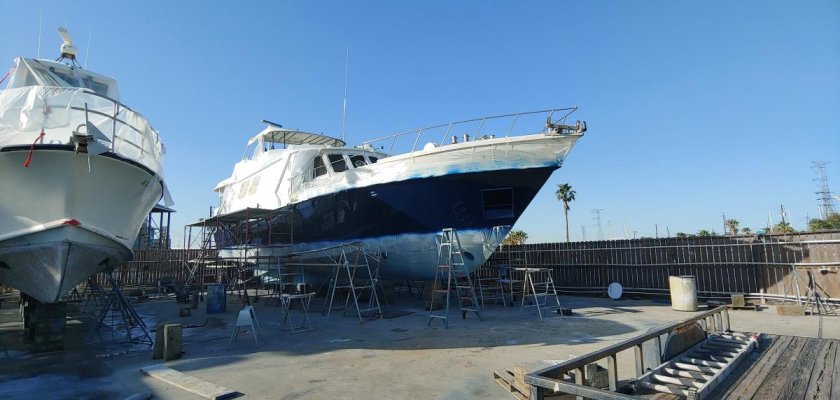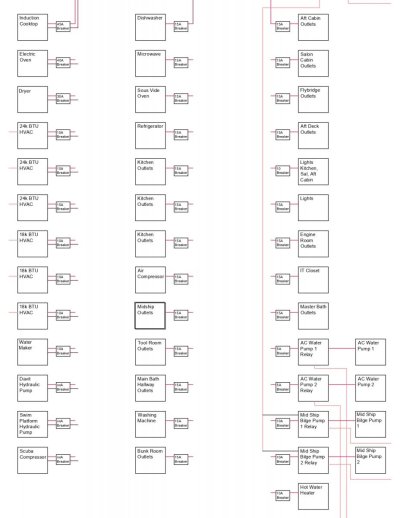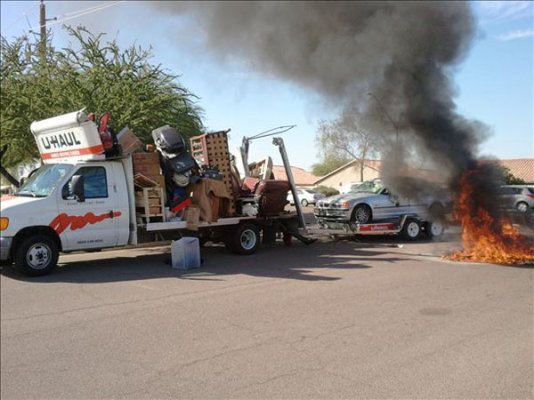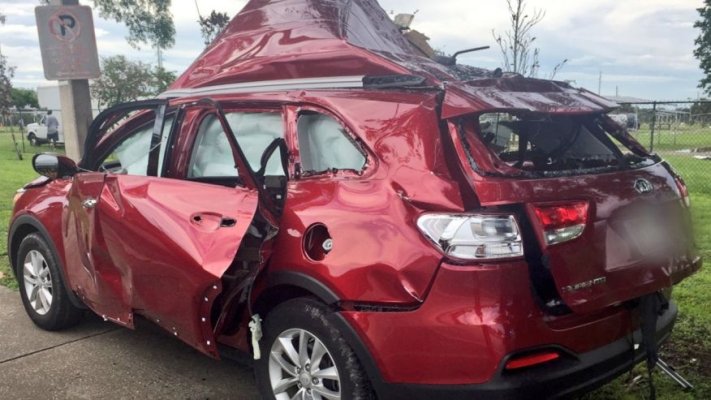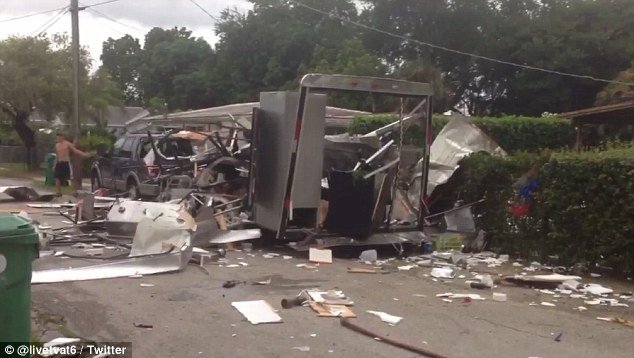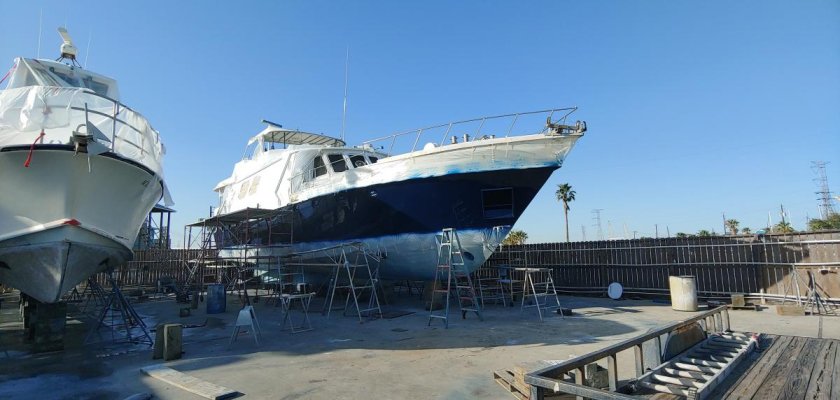The current draw is why I am debating this, though it is not for a long time, it still needs it, unless I write logic into the PLC that specifies to turn AC units off while oven and/or cooktop is in place.
For the Victron gear, I do think it is good, but it's price gets heavy. I also was speaking wtih Victron, where the larger units will not give me the two legs of AC needed for 230. So they advised to stick to the 5kva units, which means I need to have 4 of have them if I do not exceed 20kva, if I need 22kva, then I need to jump to 30kva. At least according to them.
I had to make the same calculation to find out what we use on a daily basis, so wrote down all the Voltage, Amps and time in use of all equipment. That resulted in a lot of different columns such as underway always on (eg engine instruments, fridge, nav equipment etc) to underway incidental (which is 'underway always on' plus eg washing machine or water maker) to on anchor always on, on anchor incidental (always on plus TV etc).
Many times those calculations are far off for the simple reason we think equipment runs all the time, while in reality it doesn't. A well insulated fridge, which is not opened continuously only works 15 - 20 min out of each hour. In winter time that may even be less. Setting the temperature a bit higher also saves electricity.
By calculating the actual time in use I could calculate the Amps I was drawing at any given moment and that gave me the Ah required to run the boat. Based on that I made the decision what to install and how to sequence our equipment.
It became clear pretty fast that doing laundry on anchor does not make a lot of sense. And since we use the boat mostly from April - October we also don't need a lot of winter clothes, which means the amount of laundry is much less.
There are other limitations as well. I cannot run the microwave, toaster, cooking stove, water heater etc all at the same time, has to be used in sequence or only a few at a time. But you get used to that real quick and if we forget the Victron quattro will protect us, since you can program that in the system.
I could also calculate that having an airco on only downstairs, while the others in the pilot house and salon would be off, did make sense. And by setting the temp slightly higher I could reduce the load on the batteries even further. In reality, like I said before, we did use the airco only a few times this summer and absolutely never in the pilot house / salon area.
My main concern was that I did not want to run the generator on anchor a lot and definitely not while I am asleep. Last part is just for safety purposes. As an added bonus for hardly using the generator we get close to the full range of the boat on full fuel tanks. By operating on one engine we will even be able to increase that range even further (from 1560 nm to 2400 nm with a 10 % reserve). That is for no wind, no current SOG of 5 kts.
In any case I was able to calculate the required amps to get me through the night and that became the basis for everything else. Battery capacity, amount of solar panels, capacity of the alternators, the chargers, inverter etc all followed out of that number.
And if it would get to the point I need a bit more energy, then it is no problem to switch on the generator every now and then, after all it is good that it does make at least 1 hour per week, just to make sure it keeps functioning.

In the end I was even able to add a complete espresso machine.

We upgraded from Nespresso to DeLonghi, so it does pay off to make an accurate calculation. And that makes my wife extremely happy, since she is from the Med and is used to the absolute best coffee in the morning.

As for Victron. My boat is set up for 220 V / 50 Hz and I guess you have 110 V 60 Hz on board your boat ?
I see they are indeed limited to 5000 VA for the US. Only with the 48 version you would be able to get to 10.000 VA. Then again, a bunch of 5000 VA is also not too bad, since it gives you a lot of redundancy, which comes in quite handy if you plan to make long trips or visit places that are well off the beaten track.
Where you buy them does make a big difference though, it really pays to do a good search on the internet, can save sometimes 50 % on the price.
Anyway, this is just some info on how I made the planning for what we need on board. It is not ideal, I admit, we still have to be conscious on how and when to use equipment. Can imagine you just want everything to work whenever you want to use it. That would be a completely different approach.
Good luck with your refit, sounds like it is an extensive one.


